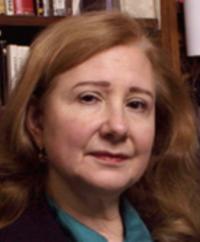Judith Jacobson, DrPH
- Adjunct Associate Professor of Clinical Epidemiology

Overview
Dr. Judith Jacobson's major research interests are cancer, asthma, and the role of behavior, including the use of complementary/alternative medicine, in the prevention and control of these conditions. She and colleagues have collaborated on studies of factors associated with cancer outcomes in national data and decision analyses of breast cancer prevention strategies, and on clinical trials of an herbal agent to control hot flashes in breast cancer patients and vitamin supplementation to prevent DNA damage in heavy smokers. With funding from the Lance Armstrong Foundation, Dr. Jacobson is studying the determinants and outcomes of the use of complementary/alternative medicine among breast cancer cases in the Long Island Breast Cancer Study. With a grant from the National Heart, Lung, and Blood Institute, Dr. Jacobson and co-investigators are studying factors associated with the development and persistence of asthma in a cohort of children attending Head Start programs in New York City neighborhoods with high asthma hospitalization rates. The Commonwealth Fund and MetroPlus are also providing funding to Dr. Jacobson and colleagues to conduct a randomized trial of an electronic device that teaches children aged 8-16 years to control their asthma.
Academic Appointments
- Adjunct Associate Professor of Clinical Epidemiology
Credentials & Experience
Education & Training
- BA, 1964 Brown University
- MPH, 1986 Columbia University
- MBA, 1986 Columbia University
- DrPH, 1996 Columbia University
Committees, Societies, Councils
Member, American Society of Preventive Oncology
Member, Society for Epidemiologic Research
Member, American Association for Cancer Research
Member, American Thoracic Society
Member, Society for Integrative Oncology
Research
Research Interests
- Chronic disease
Selected Publications
Jacobson JS, Workman SB, Kronenberg F Research on complementary/alternative medicine for patients with breast cancer: a review of the biomedical literature J Clin Oncol 2000;18:668-83. 18 668-83 2000
Kelly K, Jacobson JS, Kennedy D, Weiner MA Complementary and alternative medical therapies used by children with cancer in an urban medical center J Pediatr Hem/Onc 22 412-6 2000
Jacobson JS, Begg MD, Wang LW, Wang Q, Agarwal M, Norkus E, Singh VN, Young TL, Yang D, Santella RM. Effects of a six-month vitamin intervention on DNA damage in heavy smokers Cancer Epidemiol Biomarkers Prev 9 1303-11 2000
JS, Troxel AB, Evans J, Klaus L, Vahdat L, Kinne D, Lo KM, Moore A, Rosenman PJ, Kaufman EL, Neugut AI, Grann VR Randomized trial of black cohosh for the treatment of hot flashes among women with a history of breast cancer J Clin Oncol 19 2739-45. 2001
Grann VR, Jacobson JS Population screening for cancer-related germline gene mutations Lancet Oncol 3 341-48 2002
Ladas EJ, Jacobson JS, Fleischauer A, Teel K, Kennedy DD, Kelly KM Antioxidants and Cancer Therapy: A Systematic Review J Clin Oncol 22 517-28 2004
Jacobson JS, Grann VR, Gnatt MA, Hibshoosh H, Austin JHM, Millar WS, Neugut AI Cancer Outcomes at the Hufeland (Complementary/alternative Medicine) Klinik: A Best Case Series Review Integrative Cancer Therapies 4 1-12. 2005
Grann VR, Jacobson JS, Troxel AB, Hershman D, Karp J, Myers C, Neugut AI Barriers to minority participation in breast cancer prevention trials Cancer 104 374-9. 2005
Jacobson JS, Grann VR Can an herbal agent replace estrogen for hot flashes? Cancer Investigation 22 645-46 2004
Kronenberg F, Mindes J, Jacobson JS The future of complementary and alternative medicine for cancer Cancer Investigation In press.
Urban Health Activities
Endotoxin, Obesity, and Asthma in NYC Head Start: Asthma is the leading cause of pediatric hospitalization in New York City, especially among children under age 5 years. Dr. Jacobson and colleagues are recruiting children as they enter Head Start programs in the high asthma hospitalization neighborhoods of the city and following them for at least two years to identify factors associated with asthma prevalence, persistence, incidence, and severity in this population.
Lung Cancer Risk Factor Survey in Staten Island and Bay Ridge: Staten Island has higher lung cancer incidence rates than all the other boroughs of New York City. Some data suggest that Staten Island residents smoke more than do residents of the other boroughs. But Staten Island is demographically different from the other boroughs. We are conducting a random digit dialing telephone survey to assess smoking and other behaviors associated with lung cancer, as well as environmental and occupational factors, in Staten Island and the demographically similar community of Bay Ridge, Brooklyn. Bay Ridge's lung cancer incidence rates are similar to those in Brooklyn overall. If we find that smoking does not appear to account for the difference in lung cancer incidence rates in the two communities, we will seek funding to look for other factors that may account for Staten Island's high lung cancer incidence rates.
Herbert Irving Comprehensive Cancer Center Recruitment Core: The Recruitment Core is the community outreach arm of the cancer center. The Recruitment Core not only works to recruit study participants from the racially and ethnically diverse community that the Medical Center serves but also brings information about cancer research, treatment, and prevention to the community and provides opportunities for the community to provide input regarding these activities.